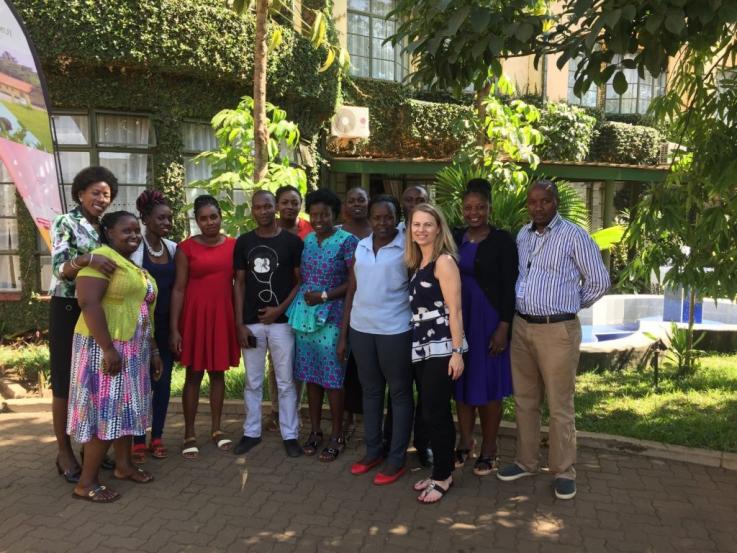
By Alison Drake and Claire Rothschild / Global WACh
As mobile phone ownership is rapidly growing around the world, crowdsourcing – asking questions to solicit information from large groups of people – is an increasingly attractive way to conduct global health research. In Kenya, nearly 90% of the population has access to a mobile phone,[1] and capturing data through mobile phones may provide a low-cost and effective solution for tracking health outcomes over time.
In 2017, Global WACh’s Dr. Alison Drake, Assistant Professor of Global Health, was awarded a Gates Grand Challenges Explorations grantto explore this idea – how mobile phones might be used to understand Kenyan women’s experience using family planning over time. Women and girls face major challenges using family planning, including side effects, stigma, cost, and barriers to access. Overall, 1 in 3 women starting a modern method of contraception stop using it within 1 year, and over half stop within 2 years.[2] This phenomenon is called the “leaking bucket”[3] in family planning coverage, making efforts to achieve universal access to family planning worldwide extremely difficult.
In partnership with PATH-Kenya, the Mobile Data Collection of Contraceptive Use, Behaviors, and Experiences (mCUBE) study is collecting information from Kenyan women using family planning in real-time through surveys distributed directly to their phone via short message system (SMS). The survey technology, developed by the Kenya-based mobile technology firm mSurvey, allows SMS questions to be personalized based on language, family planning method, and prior SMS responses.